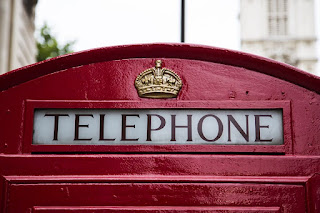
“The horror of that moment,” The King went on, “I’ll shall never, never forget!“
“You will, though,” the Queen said, “If you don’t make a memorandum of it.“
In the main, I’m not an advocate of written correspondence, Memorandums, or notes. All things considered, memo mania infects our society to such an extent that proliferating paperwork clogs organizational arteries. From my viewpoint, most written documents are either unnecessary or unintelligible. Besides, writing everything down in time consuming, and most of us find it difficult.
Recognizing the arduous and wearisome nature of writing, Stephen Leacock, a professional author, said, “Writing is not hard. Just get paper and pencil, sit down, and write it as it occurs to you. The writing is easy — it’s the occurring that’s hard.“
By and Large, a good general rule is to avoid formal written communication where possible. Admittedly, there are times when you must take pen in hand. On these occasions it is advisable to remember: Whatever you put down on paper should be written as if it will ultimately be read in a court of law.
Implicit in the phrase “General Rule” is that there’s an exception. Naturally, there is, in the case of memorandum of agreement. This is the document that you compose after the resolution of a conflict or dispute. It sets forth the commitments of each party that form the basis of the settlement.
After you’ve finished an important telephone transaction, carefully compose this written representation of the negotiated understanding. Inform the other person, while still on the phone, that you’re going to do so. You should write such a memorandum after any significant Face-to-Face agreement as well.
Experience has shown that a gentleman’s agreement can become very ungentlemanly. As Sam Goldwyn is purported to have said, “A verbal agreement isn’t worth the paper it’s written on.“
The memorandum of agreement is sometimes called a letter of intent or a memo of understanding. Whatever name is used, the purpose is the same to define the commitments of the parties involved. Typically, they are written in moth-eaten language as if the writer used a quill pen.
Some of these documents are so stilted and pompous that you might think the composer wears high-button shoes and celluloid collars. here’s the way they generally read:
“Pursuant to our conversation on such-and-such a date, we have agreed to the following…“
“As per our telephone dialogue we have concluded that…“
“Acknowledging our phone conversation of…“
Actually, the format is usually not important. What is crucial is that you do the writing. Why should you undertake this burden? Because the advantages to you are enormous.What are the scribe’s benefits?
- You have the initiative, determining when the memo will be written, the form it will take, and when it will be dispatched. Nothing will happen until you make it happen!
- The agreement will be expressed in your terms. If there’s any question about interpretation, we always ask the person who composed the documents. For example, if a letter written by James Madison regarding school busting or abortion were discovered behind a desk drawer, these dilemmas could be resolved quickly. After all, who knows better than the author how the Constitution should be interpreted?
Let’s refocus from a phone transaction to a face-to-face transaction. I’m your adversary seated across from you at a rectangular conference table. The Negotiating sessions go on and on , day after day.
Am I taking notes? No. Like many top executives, I falsely think I have a photographic mind. Are you taking notes? You can bet your bottom dollar you are. Why are you taking notes? Because doing so may give you leverage and power with respect to me.
After the third day, I irritatedly ask you, during a break, “Why are you taking so many notes? You aren’t a court reporter! We’ve already covered those aspects of the proposed contract like a tent!“
You smile, shrug, and mumble something about not being able to remember anything without committing it to paper.
On the 5th day, my photographic mind isn’t as photographic as I thought. During another break, I pull you aside and ask, “Tell me — what did we say about those 3 new codicils to the contract? they aren’t quite we say about those 3 new codicils to the contract? They aren’t quite clear to me, especially since we added 2 other codicils on Tuesday. I’m afraid I’m getting them mixed up!“
You thumb through your notes while I impatiently tap my foot. “Here it is — the 3 new codicils were spelled out on Wednesday at 2:00 P.M.“
I study your scrawling. I frown at your hieroglyphics. “I can’t make heads or tails of your handwriting!“
In the manner of a fighter pilot recapping a combat mission, you reply, “The codicils were so-and-so, and so -and-so.“
I make a face, “All I see on that page is 2 dots, an asterisk, and a star!“
You give me your best choir-boy look. “That’s what those marks mean!“
Suddenly I regard you with awe. You now have considerable power. Who can better interpret the chicken scratches than the chicken that scratched them?
So Readers, we will continue to discuss about it in our Next Part:
“Write the Memorandum of Agreement ( Part 2 )“
Do not Forget to Follow my Page for Future Updates.
Pingback: Negotiating Anything, Any Place : Telephone Negotiations and Memos of Agreement ( Part 3 ) - ZEE GLOBAL VISION SERVICES